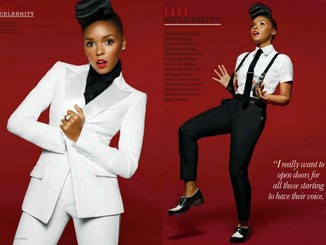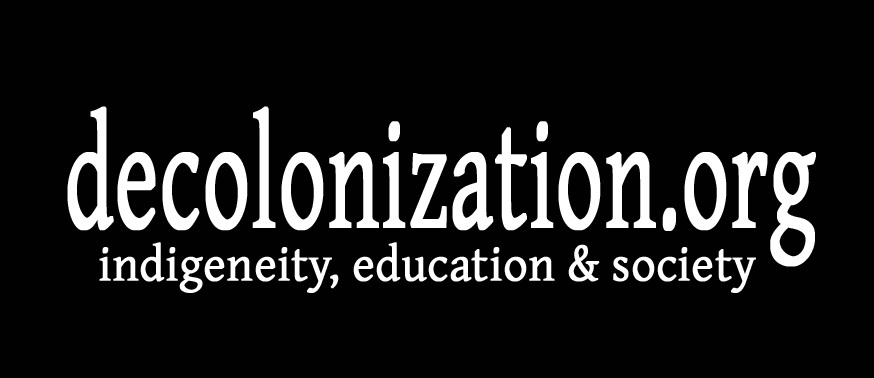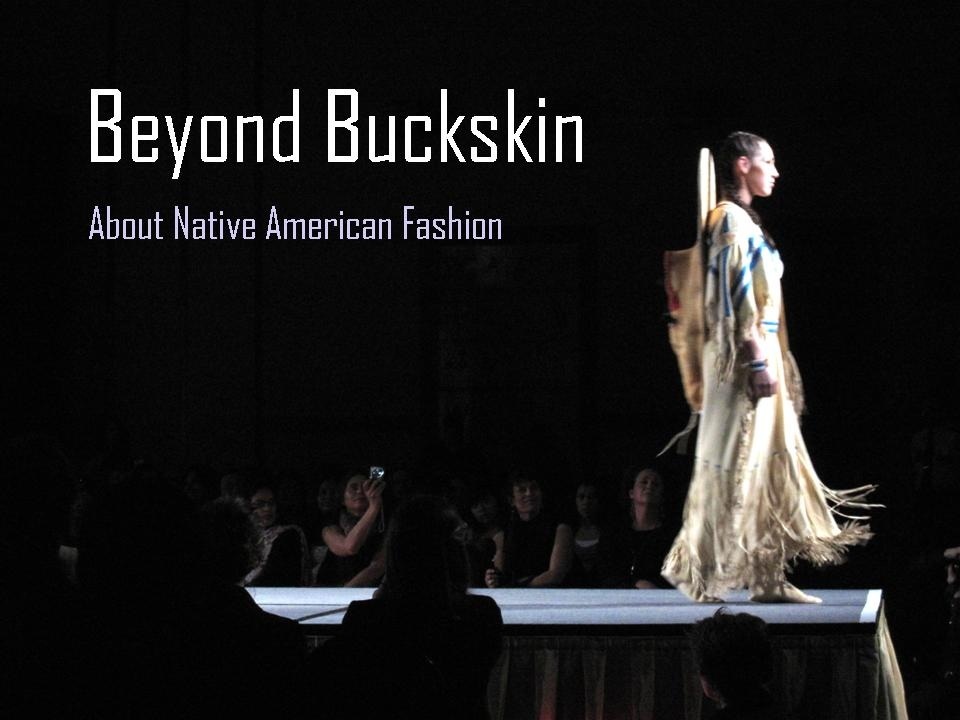|
I don't know if I would call my mother a "fanatical feminist" though (I don't even REALLY know what that means) but I'll get to that. I would call her an icon, although not in the "international celebrity" kind of way but mostly that I often go places and tell people who my mother is and they go all twee on me and start telling me how she is the most amazing woman they have ever met - oh "PS, what do you do?" Today I read an article by Rebecca Walker - writer, mother and also daughter of Alice Walker (famed author of The Color Purple and many other awesome feminist works). The article is called: How my mother's fanatical views tore us apart in which she says things like: Feminism has much to answer for denigrating men and encouraging women to seek independence whatever the cost to their families. And My mother's feminist principles coloured every aspect of my life. As a little girl, I wasn't even allowed to play with dolls or stuffed toys in case they brought out a maternal instinct. It was drummed into me that being a mother, raising children and running a home were a form of slavery. Having a career, travelling the world and being independent were what really mattered according to her. And the saddest part (at least to me) is this part: I love my mother very much, but I haven't seen her or spoken to her since I became pregnant. She has never seen my son - her only grandchild. My crime? Daring to question her ideology. She goes on to say a lot about her childhood and her strained relationship with her very famous mother. Read the article if you want to know more. I'm not going to take apart her words or (what seems to me) like her agenda. I feel for her, in that she does not have a relationship with her Mother that she seems to want - somewhat. I'm not even going to spend a lot of time defending or offering a counterpoint to the sort of anti-feminist rhetoric that becomes "you must hate motherhood and children and I yearn for a 'traditional mother' where for some reason I believe a 'traditional mother' is someone who cooks and does dishes." Let's all think about what a "traditional mother" really is, and how our "traditional mother" idealization has been influenced by - key feminist word here - patriarchy (and of course, as a Native Studies scholar lets add in a whole mess of colonialism into that influence as well). Instead, I'm going to offer my own "growing up as a child of the feminist revolution with a feminist mother" perspective. First of all, I love my mother. I love her in an entirely admiring she's my hero I can't believe I got so lucky even though she likes to call me on the phone to tell me things that I haven't done yet that she told me to do a long time ago and she can't believe I'm out of my twenties and I still wait until the last minute to do EVERYTHING kind of way. Growing up it's not so much that I ever hated her (even as a teenager), it was that I thought we had nothing in common and I would be destined to spend the rest of my life being annoyed every time I had to go home to visit. I was so different than her (in my own head). I liked Barbies, she liked to read. I liked boys, she liked to tell me how boys would only get me pregnant. I liked makeup and she liked makeup but she wouldn't let me wear make up or do anything until I was sixteen and sixteen was SO OLD. I someday wanted to have a big wedding with a big white dress and really good cake and she thought that I was basically a pawn of the patriarchy destined to fall in to the overplayed, desolate female trope of "good wife and mother." Growing up I called her a "part feminist." I would whisper it actually to my friends "My mom is a feminist, but she is only part feminist." In my youth, being a feminist was a lot like being Native. If both your parents weren't feminist then you were just a darn half breed feminist, which made me a 1/4 feminist if even. (Although, I would argue, my dad is a feminist, which means I may be as much as 1/2 feminist, depending... we have to see what the old census or Bureau of Feminist Affairs has to say about that). All in all in my life I had both my mother and my auntie who I would argue are two feminist icons, one a take no prisoners lawyer and the other (my mom) a take no prisoners educator. Both of them speak up, both of them fight, both of them got married and had babies and are really good at being grandmothers. Hence - part feminists. (This whole what makes a feminist conversation is an interesting one because you get a lot of people doing the same thing they try to do with Native people, rely on stereotypes to decide what a feminist is. "Oh well you wear make up and shave your legs, you're not a feminist." - that sort of thing. I would never claim to be the idealized feminist - although I'm quite sure "she" doesn't exist. Just like the idealized Native feminine doesn't really exist.) I wouldn't have called these women in my life radicals, although I remember them telling me a lot about how I didn't "need a man" to complete me and how "a woman needs a man like a fish needs a bicycle." I don't know what people really mean when they start using words like "radical" and "fanaticial" though I have a feeling it mostly has to do with putting up a sort of barrier between THOSE PEOPLES feminism and the much nicer, tell your friends you're a feminist because you believe women should be able to work outside of the home if they want. (To me, that is not feminism, that is just how it should be-ism.) Radical and fanatical feminists become people who make other people uncomfortable because they start asking really important questions and because what they question is the presumed "normalization" of a patriarchal society that centralizes men and sidelines women. (We could even queer this whole conversation and say "centralizes heterosexual men and sidelines women and queer identified peoples.) Somewhere between whispering to people "My mom isn't like a real feminist" and today, I became a feminist. I focus a lot of my research on feminist theory, I have taken feminist theory classes and read a lot of feminist writings. I have gone to the rallies and signed the petitions. I have had grown men say to me in classes and even meetings "well you're just a feminist" which makes me laugh like I'm supposed to deny it. I love being ACCUSED of being a feminist. Growing up a "child of the feminist revolution" with a feminist for a mom sometimes sucked. It's true. And sometimes it was just plain old awesome. But what it really was - educational. I learned to ask questions. I learned that I could ask questions. I learned that I didn't have to look toward my mother to give me all the answers, that we could have differences of opinion AND that you can be a feminist and shave your legs, or not, it's up to you. So here goes -- Five things I remember about growing up as a "child of the feminist revolution" with a feminist mother. 1. She never told me I was pretty. A little while ago I read this article. It basically says that we should stop telling little girls how pretty they are. This is because, as Lisa Bloom writes: Teaching girls that their appearance is the first thing you notice tells them that looks are more important than anything. It sets them up for dieting at age 5 and foundation at age 11 and boob jobs at 17 and Botox at 23. As our cultural imperative for girls to be hot 24/7 has become the new normal, American women have become increasingly unhappy. What's missing? A life of meaning, a life of ideas and reading books and being valued for our thoughts and accomplishments. I enjoyed the article. I think it may be a novel idea for some people to focus on talking to little girls about something else other than how perfect their skin is. (Do you ever notice how adults say that "wow, you have perfect skin" in a slightly off putting way, like they would suck the life out of the child if it meant they could get that perfect skin? Hello Evil Queen from Snow White...) But I also have been there. My mother, lovingly, and admirably actually, focused very little on looks when it came to women and young girls. This was her feminist standard. Instead she would talk about women being leaders, smart, funny, talented. She never said "Look at how nice Hilary looks with that new haircut." She always said "Hilary Clinton needs to leave her philandering husband and vote for universal health care!" Mom has always been about helping girls and women to dance and sing and do it loud and proud. She focused on giving girls words to speak about what they believe in. She encouraged girls to be proud of who they are and to not care what anyone thinks. She did the same with me. And in turn I grew up thinking: "Man, I must be the ugliest little girl ever." Logic. Because in my head when I would get all dressed up, fix my hair into three million pony tails, pick out the perfect pair of tights to go with the perfect pair of shoes and walk out into my living room only to be faced with some conversation about if I was ready for my test, or how I did on my math homework, or if I was excited about my softball game I thought "but what about my outfit?! Don't I look pretty?!" I would notice that other mothers would tell their daughters how gorgeous their hair was, how nice their smile was, how beautiful their eyes were and my mother would pat me on my head and tell me to do good in school. It felt (at the time) like a very awkward silence as we were headed in to the classroom. All the mom's would join in to a chorus of: "You're so beautiful." "You're so beautiful." "You're so beautiful." AWKWARD PAUSE. And then my mom would say: "Well, Cutcha. Do good in school." Many years later when I confronted her with the fact that I was ugly and I knew it she just smiled and said "why would you think that? You're a very beautiful person." And I said "Whatever you have to say that you're my Mom!" And then she said "Actually, I don't have to say anything, even if I am your mother. And what's beauty anyway? Beautiful because you are smart, because you are funny, because you care about people and want to help them?" "No! Because I have nice hair!" This is not to say that I think we should spend a lot of time telling girls how pretty they are or they will just become convinced that they are ugly. I'm just saying I've been there. On the day I had my daughter random nurses would come by my room to tell my how beautiful my baby was. They said she was the most beautiful baby they'd seen in the ward for quite some time. She had dark, large, round eyes and a full face and such a gorgeous face. And my mom came in, picked her up and held her for a minute before she said "She's looks so smart. Look at her looking all around and seeing the world. She must be the smartest baby ever." Exactly.  2. She tried to make me wear a tuxedo to my prom. Every time. Pants. She was all about trying to make me wear pants. PANTS. Later on Janelle Monae would put me in my place on the great pants debate. And looking back I would have rocked the crap out of some suspenders. To my Junior Prom we compromised and I let her pick out my dress and she picked something that looked like this. Which my BFF still maintains was my most fashion forward moment of high school. 10 points for feminism! (and my Mom) 3. Nothing was ever just "cute" to her, it was always a tool of the patriarchy to continue the oppression of women. (something something hegemony) There was this kid in my pre-school class who was in love with me-IN LOVE WITH ME. I mean the boy drew me pictures and brought me lunches and insisted that one day we would be married. I think he made me a card that was like "this is a picture of us one day when we get married." We were four and he was planning our wedding and everyone was going "how cute, look at how much he loves her." And my mother was rolling her eyes and telling me how awful it was that all people expected of me in my life was to get married to some boy. Why didn't he draw a picture of me as the freaking President of the United States and say "one day I will be your Secretary of State because you are such an awesome leader." One time we were playing some game at school where him and all of his friends were mercenary soldiers rescuing some really important thing from some really bad guys -- and I was the wife. That meant I stayed in the sandbox and waited for him to get back. I knew right away I shouldn't be flattered by this whole trope, which is why I mostly tried to ignore all the other freaking Moms at school who thought it was so cute how attentive this boy was to me. I mostly played the role of disinterested third party in the whole situation. Although I remember spending a lot of time listening to my Mom lecture me about how I should want more in life, I should want to be a Doctor, I should want to travel the world, I should want to go to Graduate School and get a PhD. And me being like "nobody WANTS to go to Graduate School Mom, they just end up there." Kidding, I was four. I remember mostly being like "yeah, I get it Mom. But it's also kind of nice having someone who will bring me a fruit roll-up or trade for my yucky cheese sandwich just because he likes me." Ask me how this story ends. No really - ask me. One day she takes me to his house to drop me off for his birthday party. He lived in this huge house cause his Dad was some important person or something. All the kids are there running around. My mom, all heavy sighs and eye rolling, pulls up in the driveway to drop me off and I start crying and refuse to get out of the car. I thought she was dropping me off to marry him and that I would have to live with him forever. "I don't want to marry him Mom I want to live with you!" This eerily would kind of be a repeat of the day my Mom married my Dad so in the end we may have had more in common than I thought. *End Scene* 4. She hated the first boy I ever loved on principle - even though she had never talked to him. She never would talk to him either. At least that I know of. I've never asked him. I'm friends with him on Facebook now, maybe I should see if he ever actually said anything at all to my mother. He was afraid of her. Everyone was afraid of her. One time I snuck into his house when I was home alone. (ooooo - I may just be in trouble after this blog entry is over) He wanted to show me his bird (a real bird people, get your mind out of the gutter). I'd never been in his house before. Not that we didn't have many, many opportunities when I was home alone for me to go into his house, but I wouldn't do it, because I knew, I just knew that would be the day that my mom would come home early for some reason and spot me coming out of his house. I don't know what she would have done, in my head it somehow involved flames coming out of her ears and lightening bolts flashing out of her fingers and the total and utter destruction of our entire neighborhood. But what it would probably be is her just saying how disappointed she was that I was once again spending most of my day trying to impress, follow and entertain some boy. She would say "you are so male identified" and it took me a long time to look at my life and think "no, really, I'm more Mom identified." Mom and Grandma (and my auntie, though she probably doesn't know that about me. But it's true.) They just seemed so untouchable. To me they had the perfect lives. They had really good educations, which they were really good at while they were also really good at finding really good jobs while they were really good at finding really good men who really truly loved them and wanted to give them babies and be with them forever. Because to me - when a man could love you - that meant everything else in your life would just work out. The rest felt easy. I could be smart. I could do good work. I could succeed at the things I put my mind to. But getting someone to actually LOVE me was hard. The only way to do that was to work at it like a job. And yet for my feminist female family icons it was SOOOO easy. And my mom would say "Getting a man to love you is easy. Getting a man to respect you and support you is harder. They won't unless you respect and support yourself first." Which I would usually end with "yeah, okay Mom, uh huh, whatever" because I was fifteen and knew EVERYTHING already. 5. She did not say congratulations on the day I got married or the day I told her I was pregnant. This I probably share with Rebecca Walker. Although mine seems a little less traumatic. Walker writes about the day she called her "Mum" to tell her she was pregnant: Instead, when I called her one morning in the spring of 2004, while I was at one of her homes housesitting, and told her my news and that I'd never been happier, she went very quiet. All she could say was that she was shocked. Then she asked if I could check on her garden. I put the phone down and sobbed - she had deliberately withheld her approval with the intention of hurting me. What loving mother would do that? I don't know if that' s a feminist thing. I guess your feminist self and all the other parts of your self (the part that worries about your child, the part that was raised by crazy parents, the part that remembers babies being hard etc.) can come together to create a reaction that isn't the kind you normally see on TV where everyone starts yelling about how happy they are. My mom never thought she would get married and she also thought she would never have kids. (Ha ha! Surprise!) This was not only the "feminist" part of her that thought this, it was all the parts of her.
The day I told my mom I was getting married she said "why?" And then "are you sure this is what you want to do?" And the day I told her I was pregnant she paused and finally said "you know, that baby is going to need braces some day, how are you going to pay for the braces? Babies are expensive." It was many, many weeks later that she came to visit and took me shopping for maternity clothes. When we were trying on maternity jeans (oh my goodness do I love me some maternity jeans) she said to me "You know babies change your life." I just nodded. "Everything is going to be different now. I didn't have any idea what I was in for with you or your brother." "But then you figured out we were freaking awesome sauce and you couldn't imagine your life without us." And she said "Actually I can imagine it. I have imagined it. Of course, I also knew that your Dad and I would make excellent Grandparents." It's true. Excellent feminist Grandparents.
0 Comments
Your comment will be posted after it is approved.
Leave a Reply. |
SubscribeClick to
AuthorCutcha Risling Baldy is an Associate Professor and Department Chair of Native American Studies at Humboldt State University. She received her PhD in Native American Studies from the University of California, Davis. She is also a writer, mother, volunteer Executive Director for the Native Women's Collective and is currently re-watching My Name is Earl... (5) Top PostsOn telling Native people to just "get over it" or why I teach about the Walking Dead in my Native Studies classes... *Spoiler Alert!*
Hokay -- In which I lead a presentation on what happens when you Google "Native American Women" and critically analyze the images or "Hupas be like dang where'd you get that dentalium cape girl? Showing off all your money! PS: Suck it Victorias Secret"
In which we establish that there was a genocide against Native Americans, yes there was, it was genocide, yes or this is why I teach Native Studies part 3 million
5 Reasons I Wear "Indian" Jewelry or Hupas...we been bling-blingin' since Year 1
Pope Francis decides to make Father Junipero Serra a saint or In Which I Tell Pope Francis he needs to take a Native Studies class like stat
I need to read more Native blogs!A few that I read...
Archives
June 2020
Categories
All
|






 RSS Feed
RSS Feed
